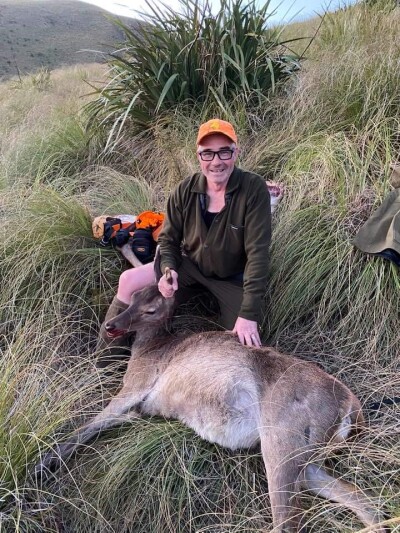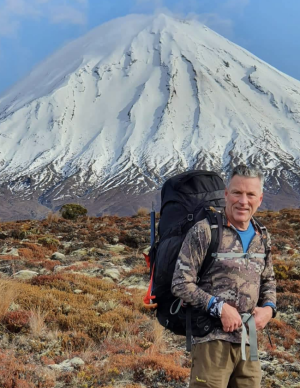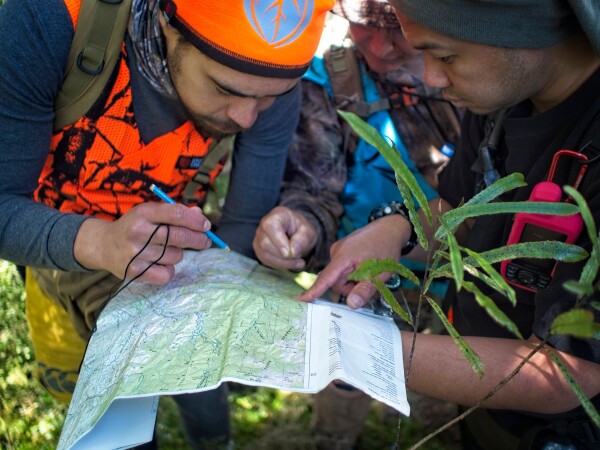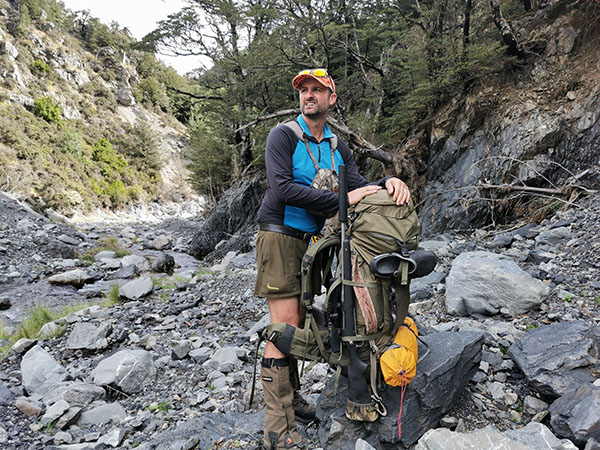Hunting orgs gearing up for another Roar
The excitement is running rife as the Roar hunting season is upon us. We chatted to some national organisations who have some parting advice for hunters this Roar.
Hear from Land Search and Rescue, NZ Deerstalkers Association, Game Animal Council.
Land Search and Rescue
Based in the mighty southern city of Dunedin, Paul Kelly has been a LandSAR volunteer for 34 years, and two decades of that has been a LandSAR tutor. Three decades in the job means Paul has seen almost everything, and can identify the common mistakes hunters make during the Roar.
Look out for getting caught up in the rush this Roar
It’s easy to get caught up in the rush of the hunt, and this can affect judgement in the bush, he says. Paul’s tips to help manage the rush and to ensure a safe hunt are: “Make sure you have the gear to be comfortable in the environment you’re hunting in and know how to use it and be able to adapt it to unforeseen circumstances.”

Land Search and Rescue volunteer Paul Kelly
A short story from Paul:
“The most blood curdling and exciting moment I’ve ever had during the roar was when my mate roared up a stag in a dark very steep thickly vegetated gully to within about 5 metres from me and stopped, I couldn’t see him but his thrashing and roaring made it obvious where he was. He never stepped into the open so I didn’t take the shot. It’s a rule I’ve followed over the last 50 years; if you can’t see an animal clearly then there’s no shot.”

Land Search and Rescue | Jeff Franks
Jeff Franks from Land Search and Rescue
Nowadays, Jeff Franks stays warm and dry indoors while his son stalks the hills each Roar. But it was a different story many years ago for the Horowhenua Land Search and Research volunteer of 10 years. He remembers the Roar as a time you just had to go hunting. While he misses those days, he is still involved by talking through the prep with his son, making sure safety is a key focus, Jeff says.
Get prepared by doing the research
You can never do too much preparation and research, he says. "It starts with knowing the area you are hunting. Keeping an eye on the weather forecast in the lead up. And taking all the right gear - warm clothing, waterproof jacket, shelter, a PLB, etc.
Ask others you know who have hunted the areas for tips too, he says. “If you are well prepared you will have a more enjoyable time in the bush, and live to tell the story!”
A short story from Jeff:
“Many years ago we were up first thing to make the long climb from the hut to the tops. As we emerged into the tussock we spent around 45 minutes glassing the immediate area before moving further up the ridge. Just before moving off my hunting mate put his rifle down and stood up to ‘relieve’ himself. Right in front of him a deer jumped up and ran off down the ridge. Before he could pick up his rifle it was gone. We hunted all day and never saw another animal. Patience is a virtue!”
Find out more about Land Search and Rescue.

Hunters looking over a map, Rosauro Nava (NZDA)
NZ Deerstalkers Association (NZDA)
NZDA represents and advocates on behalf of recreational hunters and shooters in New Zealand. They have branches across the country that offer hunter training and are a great way to connect with like-minded hunters.
Every year leading up to the Roar, the most exciting thing for those at NZDA is the roaring of the stags - hearing the first roar of the year on a cold autumn day in the bush is unbeatable.
Look out for an unexpected night in the bush
NZDA say for hunters, spending an unexpected night out is a common occurrence during Roar. This is either because they’ve hunted hard chasing a stag or they’ve had a slip or fall.
They recommend all hunters carry a Personal Locator Beacon (PLB) and survival kit in addition to their usual first aid supplies. This adds an extra level of security if a hunter finds themself in an emergency situation.
NZDA also recommends hunters tell a friend their plans and when they expect to be back so that if they’re late coming home, someone will know their intentions.
A hunting survival kit should contain at a minimum:
- Matches or lighter
- Fire starters
- Torch
- Whistle
- Shelter (fly, survival bag or bivvy)
- Emergency food
- Signalling equipment
- A small, sharp backup knife or multitool
- 2 metres of cord
To learn more, you can join a hunter training course with the NZDA.

GAC General Manager Tim Gale.
Game Animal Council (GAC)
It’s no surprise Tim Gale has a passion for helping hunters become safer and more successful. He has been hunting for 25 years at both a recreational and professional level and leads GAC as the General Manager. Some of GAC's responsibilities relate to hunting and the management of game animals.
Tim compares the Roar like Christmas for hunters. Successfully calling on a roaring stag is part of the hunting experience while sharing that with friends and family, he says. While harvesting an animal is always the objective, it’s not the be-all and end-all for Tim. Every year he appreciates more and more just being free in the hills.
Look out for slips, trips and falls
The most underestimated risk for hunters is the risks and consequences associated with slips, trips and falls, he says.
"My advice is to make sure you are wearing footwear that is suitable for the terrain, consider using a walking pole - trust me, they are good - and appropriately assess the conditions before embarking on a tough ascent/descent or sidle,” Tim says.
One piece of kit he never goes hunting without is a Personal Locator Beacon (PLB).
“While the initial cost of buying something that you will hopefully never use can be off-putting for some people, the peace of mind it brings me, and my family, is worth every dollar.”
PLBs are available to hire at many outdoor stores nationwide.
Follow the Game Animal Council’s 5 Ps for a safe and successful Roar.
NZ Mountain Safety Council’s Seven Roar hunting tips for staying safe:
- Research the area and have a backup plan
- Check the weather and be prepared for it to change
- Pack a rain jacket and shelter just in case
- Tell a mate your plans before you go
- Check in with your mates regularly
- Take a map and keep track of your movements
- Watch your footing and take your time
We would like to thank our partner organisations for sharing their stories and seasonal advice. Best of luck to everyone heading out this Roar.
Read more of our stories:
- Common injuries for Kiwi hunters
- Regional advice for Roar hunters
- Heading outdoors after extreme weather
- Notes from the bush | A Roar Season 2022 Wrap-up
Header Photo: Andrew Morrison, NZDA Supplied